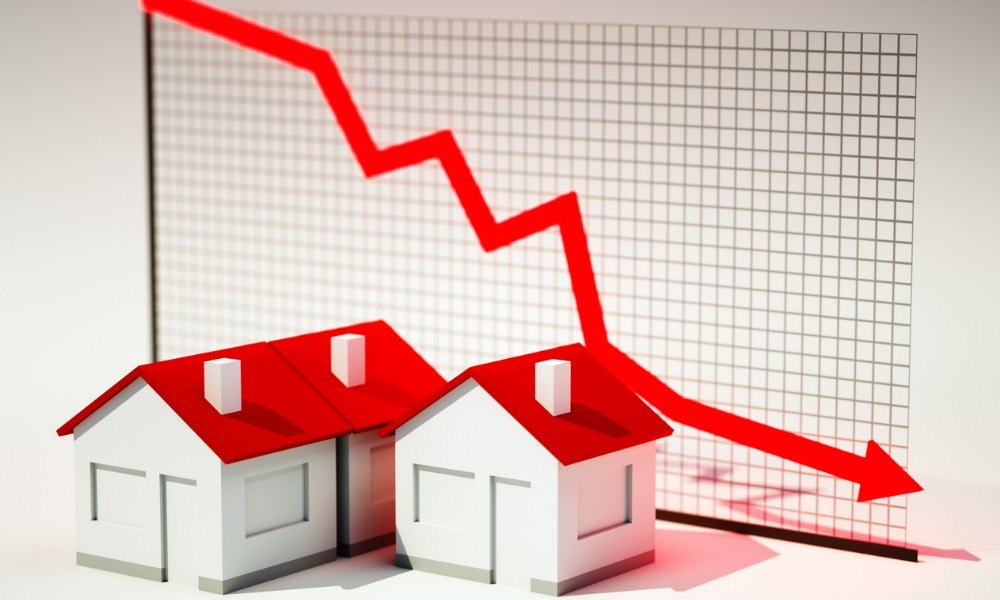Reduced borrowing capacity will keep pushing prices down

Property values are likely to keep falling for months even after the Reserve Bank stops raising interest rates, economists say.
Prices will continue to tumble because potential home buyers’ borrowing capacity will be reduced as banks slowly pass on the rate rises, The Sydney Morning Herald reported.
Economists predict that the price falls will be orderly, and do not expect a wave of distressed sales as a large number of borrowers roll off fixed-rate mortgages this year, the Herald reported.
The Reserve Bank has hiked rates eight consecutive times since May of last year, raising them from their record low of 0.1% to 3.1%. Another rate hike is expected today, and some economists expect it to be the final hike in the cycle. Others, however, expect the cash rate to rise as high as 4.1%.
A couple earning two average incomes has already lost $306,000 in borrowing capacity since the RBA began raising rates, according to a Canstar analysis.
Banks often pass rate hikes to consumers over the course of two or three months, so it can take a while for mortgage rates to catch up to cash rate changes, the Herald reported.
Potential buyers receive pre-approval for a home loan that generally lasts for about three months. However, if they do not buy within that time and rates go up, their next pre-approval may have a smaller loan size.
Since rate rises take time to pass on, borrowing capacity would continue to decrease even after the RBA stopped hiking the cash rate, the Herald reported.
Declining borrowing capacity
The decline in borrowing capacity was the largest driver of house price falls last year – with home values dropping 8.4% from their peak by January – and is expected to be the main driver in 2023.
Read next: Will the cash rate stay in the 3% range?
Barrenjoey is predicting a peak-to-trough house-price decline of 15%, and senior economist Jonathan McMenamin said he expected a 30% drop in borrowing capacity.
“While rates will stay at a high level, the actual prices in the housing market will take some time to catch up to the fundamental value,” he told the Herald. “The fall in borrowing capacity of 30% will weigh on the property market during 2023. The effect of the roll-over will change the speed of the adjustment. But the level we think house prices will go to will be mostly based on borrowing capacity.”
Fixed-rate cliff
However, the large proportion of fixed-rate mortgages is a risk for the property market, according to CoreLogic head of research Eliza Owen.
Thirty-six per cent (36%) of mortgage debt is currently in fixed-rate loans, and about 70% of that is due to roll into variable terms this year, the Herald reported.
“For those on fixed terms it’s going to be a more intense sticker shock, and so it could see an increase in distressed sales,” Owen told the publication. “But I think it’s really uncertain how risky that fixed-rate cliff is. The official guidelines for whether or not you’re able to repay a loan is three percentage points above the product rate and the Reserve Bank rates have already risen that much.”
McMenamin said that distressed sales could lengthen the market cycle, but they wouldn’t increase overall price falls.
“What we might see is people trying to hold back from selling their homes as long as possible, and that will make the cycle more drawn out,” he told the Herald. “As people have to sell we might see the rate of decline pick up again.”
Have something to say about this story? Let us know in the comments below.



